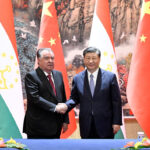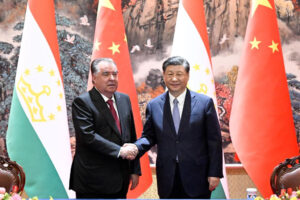In a decisive week for Colombia, and its long-standing maritime dispute with Nicaragua, the International Court of Justice (ICJ) will hand down a verdict on whether the Central American nation has legal jurisdiction over a large area of the western Caribbean and area that includes the waters of the archipelago of San Andrés.
The case against Colombia “concerning title to territory and maritime delimitation” was first filed by Nicaragua in 2001, and challenged a 1928 treaty in which Colombia recognized Nicaragua’s sovereignty over the Mosquito Coast and the Corn Islands, while Nicaragua recognized Colombia’s sovereignty over the islands of San Andrés, Providencia, and Santa Catalina. According to the high court, the historic treaty between the two nations failed to provide answers as to which other maritime features formed part of the Archipelago, and therefore, the ICJ has jurisdiction to adjudicate on the dispute regarding sovereignty over the archipelago and other maritime features.
A verdict that includes claims by Nicaragua to sovereignty over several small islands situated in the Caribbean — the Albuquerque Cays, East-Southeast Cays, Roncador, Serrana, Quitasueño, Serranilla, and Bajo Nuevo – could deliver a legal blow to Colombia should the UN’s top court determine that the South American nation is violating Nicaragua’s territorial waters – or Exclusive Economic Zone (EEZ) – with fishing activities, marine scientific research, oil exploration and navy patrols.
Given Nicaragua’s claims for a delimitation of a continental shelf extending beyond 200 nautical miles from its coastline, and one that would substantially reduce Colombian waters around the Archipelago and Cays of San Andrés, just days before the ICJ ruling, Colombia’s Ambassador to Nicaragua, León Freddy Muñoz, participated in a pro-Sandinista march wearing a red scarf and baseball cap with the FSLN logo. The July 7 march was in support of Nicaraguan dictator Daniel Ortega and the 1979 Sandinista uprising that overthrew Anastasio Somoza. “What I have felt since I arrived in Nicaragua on September 30 is that a happy, beautiful, and kind people are convinced of their revolution,” stated the diplomat.
Muñoz’s comment has faced a barrage of criticism in his native country. “It is my obligation, as Ambassador, to participate in meetings or important activities for the Sandinista government, since I must make a strategic presence to take care of the national interests of Colombia. In Nicaragua, this goes beyond legal strategies in The Hague or multilateral organizations,” he added.
As the controversy reaches a fever pitch in Colombia, Foreign Minister Álvaro Leyva summoned Muñoz to Bogotá to explain his participation in a march that is backed by one of Latin America’s worst autocrats. President Gustavo Petro recently condemned the Nicaraguan regime for systematic attacks against opposition leaders, freedom of expression in the Central American nation, as well as abuse of the InterAmerican Charter on Human Rights.
“The Republic of Colombia, led by President Gustavo Petro Urrego, has registered with repulsion the arbitrary measures taken by the head of government of the sister and suffering Republic of Nicaragua against citizens of his country whose only crime has been to defend democracy,” reads an official statement from the Cancillería in February 2023.
Should the ICJ grant even more maritime jurisdiction to the Central American dictatorship, relations between Petro and Ortega will deteriorate to the point of a verbal war of words, and one that will resonate across the Caribbean to Washington. US Senator Marco Rubio was among the first to condemn the actions of Ambassador Muñoz. “It is inconceivable that the ambassador of the Petro government applauds a bloody Marxist revolution. It is a serious insult to all Nicaraguans and exiles who still suffer the repercussions of the Sandinistas,” wrote Rubio on Twitter.
The Republican lawmaker’s statement met a response from Colombian columnist Thierry Ways: “You’re wrong, Senator. It is despicable, repulsive, opportunistic and pathetic. But it is not “inconceivable”. On the contrary, it was perfectly predictable.”
Source : The City Paper
















